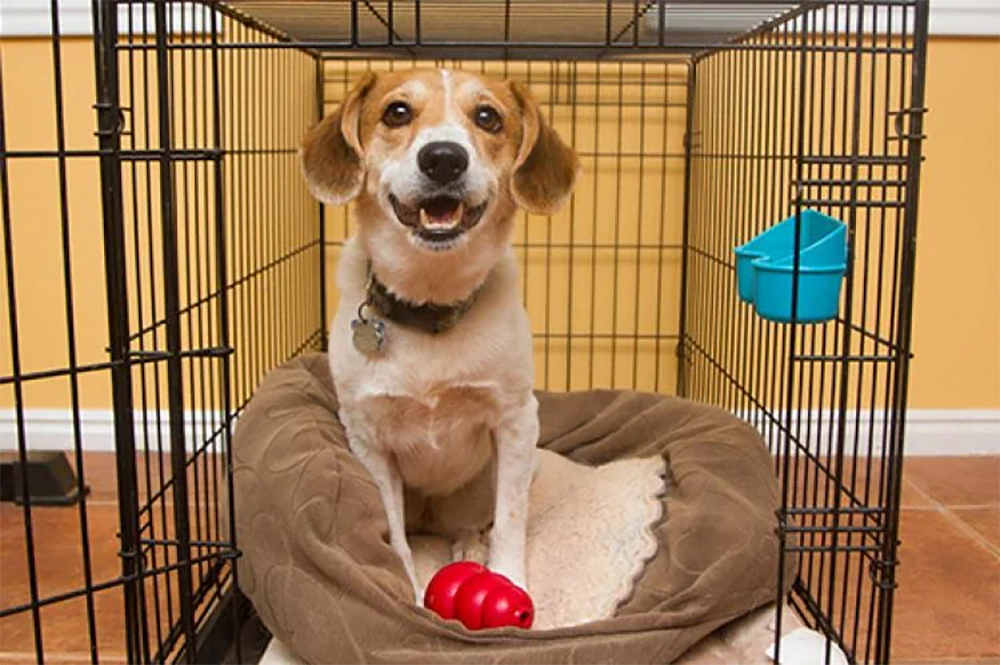By Heidi Clayton
There are many benefits to crate-training your dog or puppy. Crates are not mean. You also will not have to keep your dog or puppy in one forever. Teaching your dog or puppy to settle in a crate can prevent separation anxiety, help with housebreaking, and help you maintain your sanity when raising a puppy or bringing a new dog into your home.I train a number of dogs or puppies that have separation anxiety and simply do not know how to settle themselves. The common theme in their life is they were never crate-trained. They were never shown exactly “how” to relax and self-soothe. Some were only in the crate at night when everyone in the house is sleeping and allowed to either roam freely all day or strictly put in playpens. While I do use playpens for my young puppies, I also place them in an actual crate throughout the day.
No puppy simply knows how to relax. A bull terrier puppy will play and romp as long as you let them. When overtired, they leave a path of destruction in their wake. I never wait until a puppy is overly tired to put them in a crate to settle down. Sometimes for no reason at all, I put them in a crate with a yummy bone or treat to gnaw on. I do this when I am home and in their presence as often as I do it when I leave the house. I make the crate comfy with crate pads and blankets to snuggle in and will feed them their meals inside their crate with the door closed. I do this when I am home and active to help my puppies understand that just because I am here doesn’t mean they will get access to me all of the time. It helps them learn that they can relax and settle themselves.I also crate my puppies to prevent dietary indiscretions that can kill them. With a puppy or a dog that you just rescued, you do not know them well yet and can’t say with one hundred percent certainty that they will not eat something they shouldn’t. Leaving a dog uncrated is, in my opinion, a dangerous gamble. The average intestinal blockage surgery costs over $5,000.00. Cost aside, your puppy or dog can die from a blockage and the surgery is not an easy one. Placing boundaries on them not only teaches them to settle but can prevent heartache and destruction.
Teaching your puppy or dog to settle and relax in a crate can also remove unwanted stress in times of emergencies. Living in an area where hurricanes are common, you don’t want to add extra stress to your dog who has never been in a crate during a possible evacuation. Also, not everyone who visits you at your shore house likes dogs. Perhaps you will have an elderly visitor or a new baby where the dog or puppy will have to be crated for everyone’s safety. It is also common for dogs to suffer an illness or injury that requires a crate reset to heal. Not training your dog or puppy to settle in a crate to lead to injuries or illnesses being aggravated.Times of crisis like hurricanes or injuries can require dogs to be in a crate. It is not a good idea to have your dog’s first experience of being in a crate for a prolonged period of time to be in an emergency. Crate training will make a huge positive difference in your dog’s life.
If you have any questions, please feel free to email me at heidi@fouronthefloordogtraining.net.Heidi Clayton started Four On the Floor Dog Training to provide positive, reward-based dog training in South Jersey. She breeds, trains and shows bull terriers under the SoraBully’s Bull Terriers kennel name. Email questions to heidi@fouronthefloordogtraining.net or learn more at https://fouronthefloordogtraining.net










